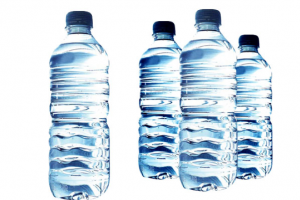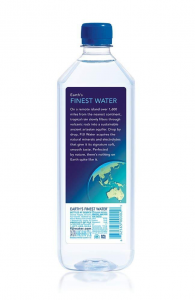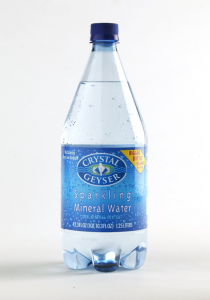Facts About the Water You Drink

Getting enough water intake is a must if you want to maintain a healthy body. Water can do a miracle in your system that’s why drinking water is a healthy habit that everyone should develop. However, most of us drink it every day without thinking much about it, and most people don’t even know that it can taste different in different locations and if it’s safe to drink depending on the source.
Many just think it has a uniform taste, well, it doesn’t! That is because there are elements in water that most people don’t know about. Water tends to vary in content depending on where you find yourself. It usually contains minerals like zinc, magnesium, sodium, or calcium, etc. The list is endless! These minerals are actually pretty important. Calcium, for example, makes your bones strong. Water can be a legitimate and effective source of minerals that our body can’t make on its own, yet desperately needs.

Water Faucet
Contrary to popular belief, water that runs from a faucet is stocked with minerals. The presence of these minerals are so important that some governments regulate the “total dissolved solids” present in the water supply of certain regions. Although there are substantial deposits of minerals in tap water, they may or may not exactly agree with your body. For example, regional water might be rich in sodium, which could be pretty disastrous for individuals with high blood pressure. The concentrations of minerals across regions are random at best, there is always a chance that your drinking water could be bad for you. First World Example: Flint, Michigan, USA.

Well Water
Aside from the minimal complications that could arise from the presence of certain minerals in tap water, there are far nastier possibilities. Governmental organizations like the FDA regulate the content of water to make sure it’s safe for consumption. Without organizations like the FDA there could be some major consequences. In more rural areas, people tend to rely on natural water sources like wells, streams, and rivers. Although these water sources are filled with some A-grade minerals (which are good for you), they don’t tend to remain pure, and often get easily contaminated. Unlike underground water deposits and springs, they are not preserved by their very nature. They are out in the open for animals to die in, for fertilizers and pesticides to contaminate. It is possible to have an uncontaminated natural water source like streams and wells but they are hard to keep pure and probably are not worth risking nausea, diarrhea, vomiting, and cramps over. So it’s always safe to stick with more regulated water sources. So if you’re drinking well water, you probably should stop drinking that and opt for some good ol’ fashioned tap water or mineral water (if you miss all those extra minerals).

Stream Water
Additional minerals like calcium and sodium is probably one of the reasons that people drink mineral water… well, that and the taste. Some people are just suckers for taste. Since drinking mineral water is actually much healthier than soda or juice people tend to go for it. However, some drink mineral water for that extra mineral boost that they contain. Certain regions could have low concentrations of minerals like calcium or zinc – and the right mineral water could provide that extra boost if you want it!

Bottled Water
All mineral water is not identical or balanced. They are rich in some minerals and low in others. Since mineral water comes from natural sources like springs and lakes, it’s not really surprising that they don’t all contain the same minerals.

Spring Water
Mineral water is just like tap water in that it contains minerals, except it contains all the essential minerals and costs way more. People’s views on mineral water are conflicting. Some believe that it’s a waste of money because tap water provides similar minerals that some people pay lots of money for, and others think it’s a substantial source of mineral resources that the body needs and tap water just doesn’t have enough. Both sides have a valid point. No side is particularly wrong, but that’s not the issue…

Fresh Water
The issue is which mineral water gives you your money’s worth – they aren’t exactly cheap after all. There are a lot of mineral water brands out there, so there’s a need to figure out which mineral water gives you your money’s worth in terms of its taste and its attributes. It’s also important to find out which affordable mineral water can provide all the essential minerals.

Fiji Water
Fiji Water
If you’re looking for affordable (and tasty!) you should consider Fiji water. It’s pretty smooth-tasting and is actually from Fiji. Aside from its unimaginative name and high magnesium levels, Fiji water is absolutely spectacular. It contains essentials like potassium, calcium, and magnesium. It also has a little bit of chloride, silica, bicarbonate, sodium, etc. It has a spectacular taste and does not linger in your mouth. It also has a standard pH level that hovers around 8 – which is not too bad. Too little pH, and the water would taste bland and you’d be drinking alkaline water, which surprisingly doesn’t actually have any medical benefits or side effects. Fiji water checks most of the boxes: it’s mineral rich, spectacular tasting so it doubles as a soda, the bottle is not weirdly-shaped, and it has a moderate pH level. The only box that this water doesn’t exactly check is the affordability box. Fiji water isn’t cheap, yet it’s not particularly expensive either. The average person could not probably stock up on this brand of water, which leads us to the next suggested water.

Crystal Geyser
Crystal Geyser
Crystal Geyser isn’t the tastiest mineral water out there. It has what some describe as a slightly chemical or mineral taste. However, what it lacks in taste, it more than makes up for in quality and price. Crystal Geyser is FAR cheaper than Fiji water – it’s almost half of the price! This substantial difference makes buying in bulk conceivable. This particular brand of water is loaded with all the right minerals. It’s rich in potassium, magnesium, calcium and sodium. Admittedly, this brand is not as rich in minerals as other more exotic and expensive brands like Fiji or Resource, yet it’s cheap, local, and tastes better than other mineral water of the same price range and mineral content.
The two brands above are not necessarily the better of the two categories established. This review is strictly from a personal perspective and should be instructive in maximizing your experience. These brands fulfill all nutritional and taste requirements. While they don’t check all the boxes, they give you a great deal for your money. Regardless of whether you choose to buy these brands, it should be noted that before purchasing any mineral water brand you should a little research to find out if its contents are compatible with your health requirements. So be careful when choosing brands!
If you’re drinking a more expensive brand of mineral water you should probably consider Fiji. The odds are that Fiji tastes better than your current choice. And, if you don’t have much to spend on mineral water, you should consider a choice that you can stock up on without breaking the bank.








